A Clarifying Interview with Cameron Strittmatter, warden of The Panic Table
Hello, you.
Links!
“A disgraceful story that demonstrates horror as a clarifying element”: an interview with Cameron Strittmatter, warden of The Panic Table.
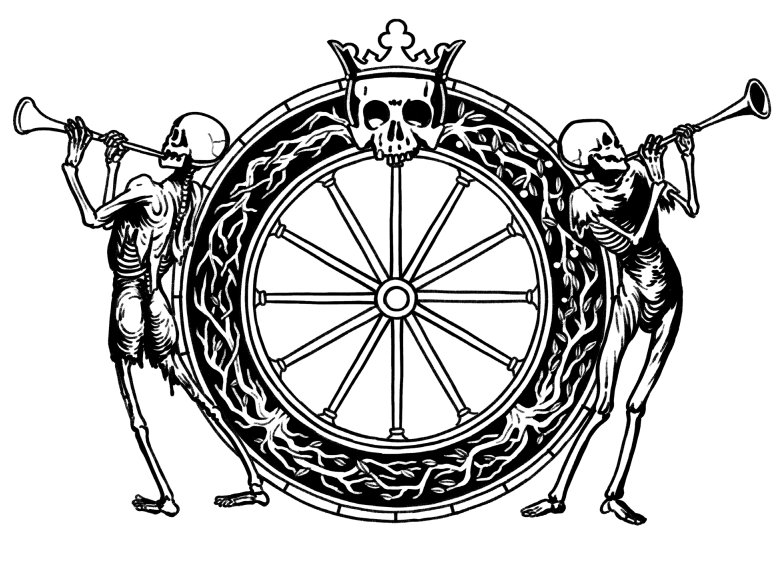
Hello, you.
Please help us circulate our latest RPG, FALSE KINGDOM!
Yes, this week we continue bang the “how do we share games” drum from this previous newsletter, as well as tooting brassy horns and plucking at harps!
RATE US! SHARE US! SHOUT OUR NAME INTO THE SKIES!
I mean, maybe not the skies. The skies don’t care. But we do care and we need the fabulous False Kingdom to reach more people! No, we're not talking about money—it’s free! We want lots of people to enjoy it. For that to happen they need to hear about it first. And there’s a lot going on in the world, as you many have noticed.
Here’s the thing: what gets people to really give attention to an RPG isn’t authors talking about their work, it’s readers talking about it with their friends and comrades. So please do share. Email the link to a friend, post it on social media, talk about it at the water cooler. The slightest mention can help enormously.
It’s also fair to say that itch.io's algorithm (whatever that is), nevermind the quantity of excellent stuff on that boundless resource, doesn’t do much to help our work bob above the surface. But rating us -- or anyone else’s work you enjoy! -- does in fact assist with visibility. So if you are able to take a second, that would be super good.
Anyway, thanks again for all the support, it means the world. And why not come and join us on the Discord? There’s nothing weird about it.
-Marsh & Jim
LINKS!
THING OF THE WEEK: Rosewood Abbey. This has been out for a little while, and I think we’ve highlighted it before, but I’ve now had a chance to read it through and I am a bit in love with the way Kalum delivers the game with a great big example from the start, as well as the remix of the Brindlewood mechanics generally. This is very much our ballpark, as you might imagine (being medieval monk murder mysteries) and is definitely going to make it to the table. There are still physical copies! Run, don’t walk. (It makes me want to write about the messed up monks and mercenaries of B.Catling’s Hollow. I might even do that at some future moment.)
Dice Exploder this week features Jason Morningstar, who created a game with host Sam Dunnewold. It’s called Northfield and it’s about Dunnewold’s ambivalent relationship with the town of the same name, where he grew up, and where the locals celebrate the near-mythical bank raid and subsequent defeat of the Jesse James gang. The pair break down their collaboration and the game they made, and it’s super-interesting to hear. Morningstar is always super articulate, of course, so it’s worth a listen.
During some research this week I learned a bit about the Chinese Hopping Vampires and their role in Chinese culture while reading about pre-revolutionary Chinese history more broadly, and then, by pure synchronistic happenstance, learned that in a months time a Jiangshi (the term for these creatures) game is launching on Backerkit. Funny how often that stuff pans out.
“Extra-light” RPG Crescent B/X is PWYW and very pretty.
I noticed Triangle Agency is up on itch.io. This is one I definitely regret not backing on Kickstarter. Just look at it!
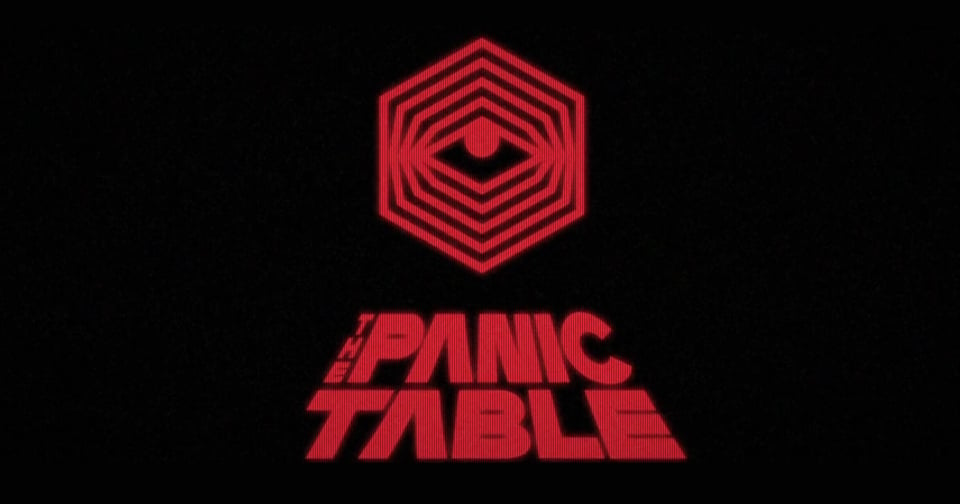
“A disgraceful story that demonstrates horror as a clarifying element”: an interview with Cameron Strittmatter, warden of The Panic Table
As anyone who's read Teeth knows, we like our horror comic and our comedy horrible. It's probably why we immediately found ourselves at home with The Panic Table, a slickly produced Mothership Actual Play series that delights in tossing a cast of comedians into the slavering maw of interstellar peril. (We also like the space-catastrophe rules of Mothership, and Jim should probably get around to writing about that.)
Two things sold me on The Panic Table immediately: the fact that one of the characters is an android called Gracie_8_Final_Copy, and the table itself, which is an almost perfect distillation of the passion and talent behind the production as a whole.
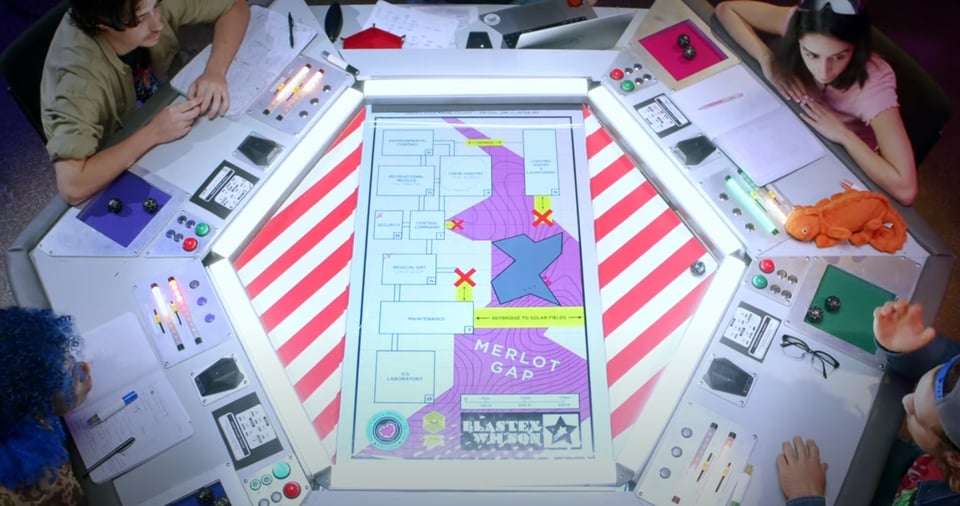
Look at that thing! It has not just a screen, but the very mechanics of Mothership itself built into it! What a good table. And seeing how it got put together under extreme time pressure sealed the deal for me: these are the kinds of obsessives who are incapable of half-arsing anything. The show could not be bad. And there are 10 episodes of escalating space peril (and horses) that prove as much, leading to a cliffhanger ending that demands a second season. That might be a way off, but what's immediately next is just as exciting: Voidstream, a Mothership module appended with professionally-crafted found footage artefacts, and more besides.
Behind all this is Cameron Strittmatter, The Panic Table GM, video production wizard and horror maven. We got him on a call.
(Edited for length and clarity.)
Marsh Davies: Let's start with horror! Are you a big fan of horror in general? Is there something about horror that attracts you to it as a genre for role-playing particularly?
Cameron Strittmatter: What a big question. Marsh, I have been spooky my entire life, which is funny because I have terrifically normal American parents. Nuclear family, dog, two kids. They enjoy things like football and soap operas about doctors. I was literate really early, and my parents were like, oh, he likes witches and warlocks and those sorts of things, and they fed that desire. That metastasized very quickly into ghost stories and things about monsters. And my love of monsters really translated quite cleanly from illustrated books to pop-up books to Goosebumps to my like third grade teacher being like, "Why are you reading It? This is not appropriate for Catholic school." So I've always loved horror; there's something about monstrousness that I think I find relatable. Even as a kid, I didn't have trucks and army soldiers, it was always things with claws and teeth or strange face paints. I think I was Maleficent for at least three different Halloweens.
China Mieville has this really cool intro to At the Mountains of Madness, the H. P. Lovecraft story, where he endeavours to take a whack at a definition of weird lit. And he makes the astute point that horror isn't a genre, it's a response to circumstance and that it can occur at any time, in any genre, at any point. It also creates a scenario in which—and here's where it applies to tabletop role-playing games—as a player or as a person experiencing horror, there is a clarifying element to it.
OK, this is a disgraceful story that demonstrates horror as a clarifying element: one time I was taking an ex-girlfriend—at the time she was a current girlfriend, the ex-girlfriend part happened very quickly after this incident—to a haunted house attraction.
Uh oh.
It was set in an abandoned mansion in North Carolina, with an attached cornfield. Truly elaborate. We were in college. It was a fun night. You know, the team went out for drinks beforehand, we waited in line and went into this spooky mansion. I recall, with crystalline recollection, the adrenaline and terror as we entered the corn maze portion of the evening, my girlfriend of the time tightly holding my hand. And then chainsaws started behind us, and I turned. Marsh, I swear to God, this is what happened: I pushed her to the ground—
Oh God!
—and ran!
Like, I reflect on that with so much humour, because part of my reptilian brain knew it wasn't real and I would love to have pawned it off as being some sort of joke, but no, I discovered something about myself then. And the portent of that really led, I think, to the events of our breakup. I do believe people are capable of change, and I have since learned things like: in a crisis, do not be that person. So I love horror as a means of self-examination, of self-exploration. It's revelatory. And on top of all these things, horror usually provides a three act structure in and of itself. Horror is reliable. It's a constant companion.
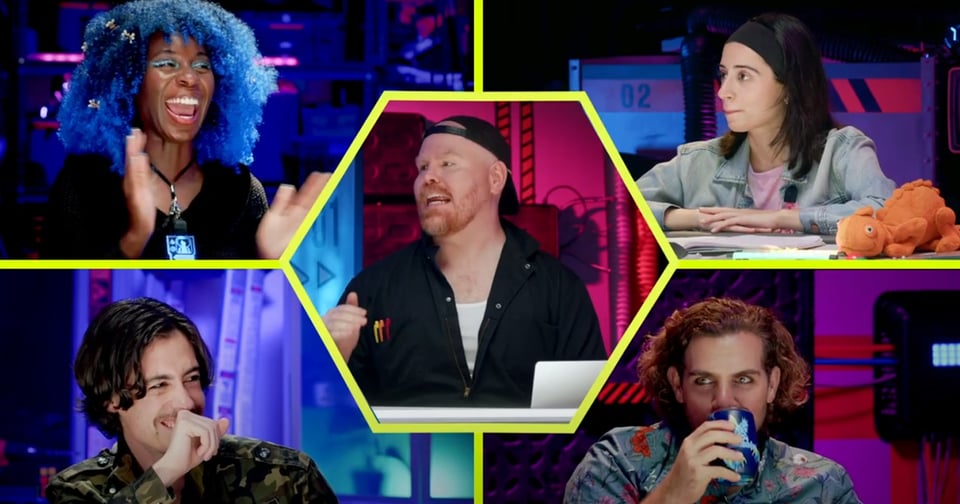
You certainly get into some pretty gnarly horror stuff in the first season of The Panic Table—but you are clearly very capable of being funny. Your cast are all very funny. Things teeter over into comedy quite easily. Is there something about horror, particularly in a role-play setting, which lends itself to that seesaw with comedy? I guess you've already answered it, in the sense that both horror and comedy are responses rather than genres.
Right, and I'm certainly not the first person to posit that horror and humour are on either side of a pendulum. There are two options to respond to surprise: one is to laugh, the other is to scream. The funniest people usually have the deepest appreciation for what is terrifying or horrifying, and have a nuanced means of interfacing with that, because laughter might be the appropriate response to tipping into madness. Horror and humour are sisters because they're both reactions to things that should not be. Is that a succinct way of saying it?
I think so! Tell me about mother Mothership. What do you love about it as a system and how it evokes the setting?
My romance with Mothership started on a surface level of thinking: spooky things are cool and they seem to understand that. But the nuance that they bring to the understanding of what it means to be playing a horror game... No matter what game you play with me, it's going to wind up probably being funny and scary: that's how I interface with the world. And Mothership is designed around the latter with plenty of room for the former. It has an incredible approach to inculcate—that's a $20 word—inculcate an environment of hospitality and shared spooky enthusiasm. A lot of these books just go straight to "Here's how you can account for your character's sanity score." Mothership spends a lot of ink on just setting a tone of safety and scary enthusiasm with your friends.
And it's bigger on the inside. It exceeds its container by understanding the mutability of gameplay: I love that nothing is gospel. They say that repeatedly throughout the rulebook. They're like, take this, use what works, throw out what doesn't. And that separates it very cleanly from dozens of other systems that I've read where you must play the rules as written. And that's a great way to play—but Mothership also recognizes immediately, if you don't want to do that, fine. Fantastic. Flex, grow and adapt. The point is sharing those terrifying moments together.
So there are a million reasons to enjoy Mothership, but I think it is the care and attention paid to creating a space that is germane to having a fun time—and that is also terrifying—while being a love letter to all of the good tropes and mechanics of things that make things scary. They understand that horror isn't in the monster stats—it's in getting to the monster. It's the time before you look beyond the door. They understand that in a way that D&D, or even some other really, really good horror games out there, don't– they are like, "And it's got tentacles!"
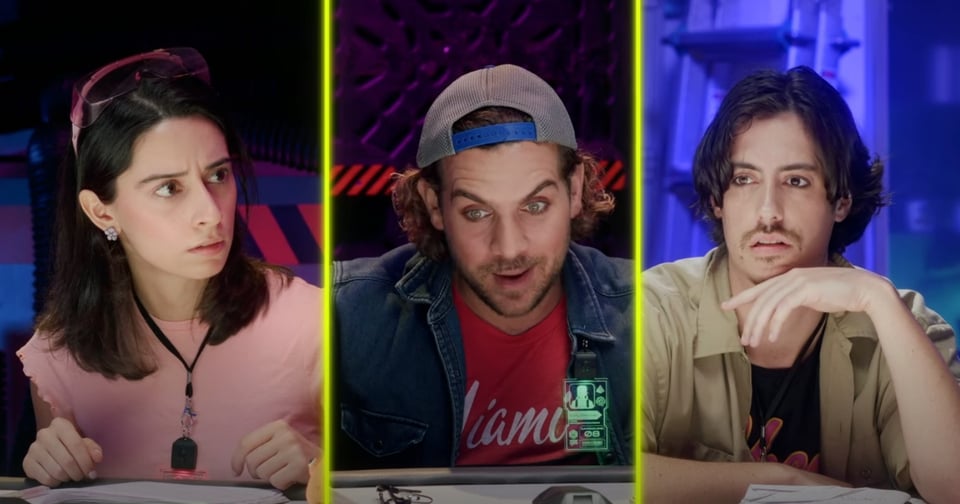
Does the permission Mothership gives to tear up its rules help with an Actual Play in terms of deciding how much of that stuff you surface and how granular you actually get on screen?
It's funny because I just touted its mutability so much, but now focusing on the play itself, very rarely was Mothership an obstacle to our play. The biggest obstacle was unlearning traditional roleplay systems, and realising that Mothership sparkles when people are stressed out. Mothership also seems like it's a game about desperately trying not to roll your dice, which is counterintuitive. The dice are just one of many tools available for both players and Warden at the table, as far as building an environment of suspense and terror. I would say one thing is I found the HP system not particularly useful; I love games that have HP workarounds that aren't just health bars. Narratively, to me there is no distinction between having like one character have 16 health points and one have 8—when the tentacles extend from the shadowy doorway, you're not wondering what percentage damage they're going to deal. Unless you are! Which makes you a perfect android player, perhaps!
But I would also say, some of that's on me as a Warden. Where I'm weakest is in that incredible skill that so many Actual Play GMs have of intimately understanding the system and therefore not wasting time with superfluous calls, where you're like, the snake bites you, oh, it only does three damage and you're immune to poison. Never mind! Let's move on, et cetera.
Your next project is Voidstream, paired again with the Mothership rules. Can you outline what it is?
I am so excited about Voidstream. Mothership has this really devoted subculture to just setting the tone. This is not new to role-playing—high fantasy, cyberpunk, the wild west, you name it—people have soundtracks and maps and special hats. Maybe fog machines if they're playing in a Regency-era bog in the Yorkshire uplands. But I thought, wouldn't it be cool if there was an asset library that wasn't just sound effects or music—it was whole farewell transmissions, or bounty hunter offerings, or just plain found footage horror from CCTV cameras on abandoned spaceships or derelict laboratories.
So Voidstream is at least a few things: at its bare minimum, we're thinking it'll be probably six artefacts. Whether those are audio and video, really depends on how the the Backerkit scales. I'm working with Jack Panic of DNGN CLUB—I 1000% recommend investigating all of Jack's work. He just finished his own Kickstarter for Relics Remastered, which is a system-agnostic pile of cool stuff with a wonderful design aesthetic. He's a brilliant innovator. And so Jack is designing something for us, on top of six different farewell transmissions. We would love, in the premium version, for you to receive a VHS tape in a gorgeous throwback case. And when you open it, the adventure that we've designed is in the slip case of the VHS itself.
Very cool.
And so at least one piece of Voidstream will be its own complete Mothership adventure. And that will have different found footage pieces that lead you to it. The fun thing is that we're still exploring what it means. There's a world where we're cranking out dozens of these things and I would love long-term to have an archive that you can log on to and search and say, okay, I want a #space station, #spiders, and find something that works for you.
Being able to play with found footage as a genre must be very exciting as someone who runs a video production company.
I'm over the moon. To me, one of the biggest obstacles for us will be keeping it fresh—that is both an obstacle and an opportunity. Found footage by its very nature is distinct to itself; so if you see more than one series of found footage items that have the same aesthetic, it breaks the illusion immediately. It means I have the opportunity to find and work with very talented horror filmmakers and composers—TikTok is silly with people who are making amazing stuff with their cell phones—and collect a menagerie of flavours and executions. I am so excited to see what comes from that.
As are we! Thank you for talking to us!
You have been reading the TEETH newsletter, a regularly irregular transmission about our adventures in the very secret land of Tabletop Roleplaying-Games. We have published a whole series of our own TTRPGs! More games are coming soon. And we shall play many others, and then report on those experiences right here, too.
This newsletter is written and compiled by immured scholar, Jim Rossignol, and wandering chirurgeon, Marsh Davies. Come and join us over on the TEETH Discord. Free tooth emojis for everyone.
And hey, please do BUY OUR BOOK!
Add a comment: